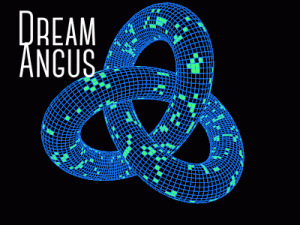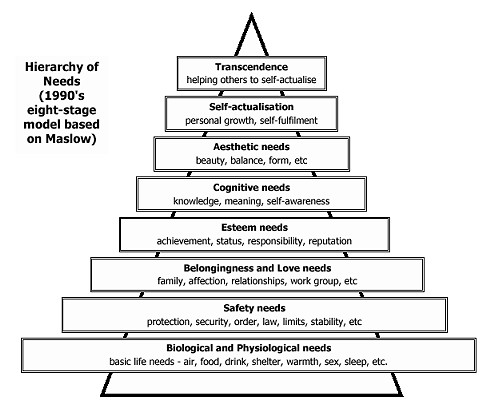

Motivation is an impulse that causes people to act. Its an internal process that makes us move towards a goal. Trouble is we have to set that goal first and believe in it strongly.The eye has to be firmly on the prize or the goal will not be realised. We can’t observe motivation we can only infer it from someone’s behaviour. In Scotland we can be said to suffer from a ‘cringe’ not universally but there is a cultural norm that pulls us back. Looking at the optimist /pessimist divide how are we placed? When you see this image what do you see?
OPPORTUNITY IS NOWHERE
A postive attitude ( more on that another time perhaps) does make all the difference.Our perceptions lock on to some things then they cannot be unseen.Thinking outside of the box it reads ‘Opportunity is now here’ for me. I must be an optimist!
Back to motivation. Theories of motivation describe how people react to reduce their needs and maintain a constant physiological state such as eating to stay in a state of balance or homeostasis.These theories fail to make sense of why some people can starve themselves for political causes despite extreme hunger, so there is more going on in terms of what motivates us.
In 1939 Mahatma Ghandi went on a fast for peace for 5 days and brought about a reconciliation during the process of Indian and Pakistani independence.His motivation was affecting peoples behaviour and stopping political violence. The opposite is also true, people who have eaten enough often continue eating when they are no longer hungry! As human beings we are often motivated by external factors not just basic drives like hunger. If you are trying to diet you might be hungry but will eat a salad instead of a full Scottish breakfast if your motivation is strong.If your motivation is weak you will be in a Macdonald’s drive in before you even get home from work.
Motivation can be either intrinsic or extrinsic. Intrinsic is when you are motivated to act for the sake of it. I write these blogs because I enjoy writing and get pleasure from thinking them through to a conclusion.Intrinsic motivation can be very powerful. Like Ghandi’s fast, he did it for himself and to achieve a higher purpose of bringing about peace.

Extrinsic motivation on the other hand is the motivation to work for external rewards.If I was writing this blog for payment , fame, a competition or other award. This is where ‘incentives’ come in.
Austerity is preventing people, families and children achieving self actualisation. Put simply, people are being stopped from being all they can be. Living in such a divided society where there is a growing gap in educational attainment the poor really do stay poor and the rich really do get more rich.
So how does austerity and government welfare reform activity affect our motivation and our ability to interact with the world we live in? In the 70’s psychologist Abraham Maslow proposed that people were motivated by a hierarchy of needs. There were 4 levels in his theory and achieving each level dependent on achieving and sustaining each successive layer.

In a society where significant numbers of people struggle to keep their families fed it is clear that people are not going to ‘self actualise’. Families in work on tax credits have been struggling to get enough money to pay for school uniforms. 6 weeks of school holidays will have put a strain on family budgets because children do not get get school meals out of term time. If you have very little money you cannot afford proper holidays or outings for your children. Failing to achieve all of these things will prevent you from having feelings of belonging. The Child Poverty Action Group have been around for a number of years and have studied the steady growth in child poverty .
More than one in four (260,000) of Scotland’s children are officially recognised as living in poverty, compared to 22% (220,000) in 2014/15. This is a level significantly higher than in many other European countries . The recent increase in child poverty is in-keeping with independent modelling by the Institute for Fiscal studies (IFS) which forecasts an increase of more than 50% in the proportion of children living in poverty in the UK by 2020/21.This would reverse most of the fall in child poverty observed in the UK since the late 1990’s.
Maslow believed that people only pay attention to higher needs when all of the lower needs are satisfied.On that basis we can deduce that austerity is a deliberate policy of keeping people ‘in their place’. As well as being poorly thought out public policy it can also be seen as a kind of deliberate form of democratic exclusion. Keep people on the lowest rung of the ladder and they will never achieve the motivation to challenge the state for putting them there in the first place.
This is why must oppose austerity, not simply because of the human misery it causes but because of the human development it prevents. When there are elections and we have had a few recently, people have to work very hard to engage voters in the most disadvantaged areas.Voting turnout is often very low. Maslow’s theory turns out to be a good indicator of voter turn out.
It is only by motivating people on the intrinsic level that for a time we can short circuit this. One of the biggest social problems in society is social isolation. People are not as connected as they once were.It is so bad some GP surgeries are buckling under the pressure of people going to the Doctor with nothing wrong with them but loneliness.
In his novel Slapstick or Lonesome No More the author proposed a world where loneliness would be eradicated. It is a science fiction novel by American author Kurt Vonnegut. Written in 1976, it depicts Vonnegut’s views of loneliness, both on an individual and social scale.
Everyone would have a family in every city and never be lonely wherever they travelled. Loneliness is a big factor in ill health in Scotland and many places across the world. This lack of ‘connection’ is killing people and austerity holding back hundreds of thousands of people from being all they can be.

Developing Maslow’s theory people looked at what happens if you achieve self actualisation. What if you achieve self fulfilment and personal growth. This is a luxury many of us take for granted. It is proposed that a stage beyond this is ‘transcendence’ or helping others to achieve self actualisation. We can ‘think differently’ if we become more aware of the way our own psychology affects us. Literally not being aware causes us to hold ourselves back. That my friends is why I write these blogs and support people to question what is wrong in the world and raise awareness of what is ahead of us.
I have never hugged a tree in my life in case you get any ideas.
Dream Angus
